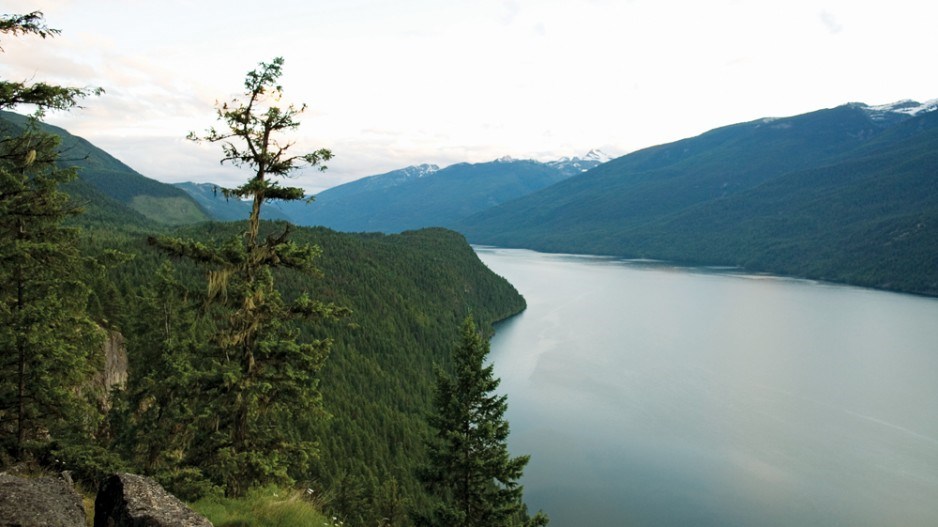When the Supreme Court of Canada confirmed nearly a year ago First Nations outside the country have Indigenous rights in Canada, the full implications of that decision weren’t fully understood.
But Dwight Newman, the Canada research chair in Indigenous rights in constitutional and international law at the University of Saskatchewan, took notice.
The law professor recently published an analysis of the decision, which he said could have far-reaching implications for government, business – especially resource industries – and Canadian First Nations.
“The case has much wider ramifications than first apparent,” Newman said in his paper, Understanding the Implications of the 2021 Decision in Desautel. “It is a precedent-setting case on the potential for Indigenous groups located outside Canada to hold constitutionally protected Aboriginal rights in Canada.”
In a 7-2 ruling made in April 2021, the Supreme Court upheld the right of a member of the Lakes Tribe in Washington state to hunt in B.C. without a licence.
The ruling could mean that in some circumstances, Canadian First Nations might have to share not only resources with their American cousins, but decisions on land use as well. That includes treaty negotiations, which may now need to embrace American Indigenous groups with historical ties to Canada.
There is no constitutional corollary in the U.S., meaning it’s a legal one-way street. American First Nations could potentially be able to assert rights in Canada but First Nations in Canada would not able to assert rights in the U.S.
Newman said the ruling has three main legal implications:
•New duty to consult obligations owing to Indigenous communities located outside Canada
•Indigenous rights claims concerning mobility across the Canada-U.S. border and Canada-Greenland border
•The potential for other cross-border Indigenous rights claims, including even the possibility of title claims
“Governments can face a duty to consult that involves Indigenous communities located entirely outside Canada if those communities have a rights claim within Canada,” Newman said in his paper.
“Governments across Canada who have thought they had resolved Indigenous land rights claims or at least were on the way to doing so, may have a new layer of complexity to consider. Those new complexities may not be advantageous for Indigenous communities in Canada who now face the possibility of new overlapping claimants to land.”
Robin Junger, a lawyer at McMillan LLP specializing in Indigenous and environmental law, said the issue is more important than people think.
“But we shouldn’t overstate this decision. It only applies in those factual circumstances where they can show historic, but not present, connections,” he said. “It’s not just every Aboriginal group that can assert this. It’s not that simple.”
The Supreme Court ruling is based on the 2010 hunting of an elk in B.C. by a member of the Lakes Tribe in Washington state, which historically occupied parts of the West Kootenays.
After Richard Lee Desautel shot an elk, he notified Canadian authorities and was charged under the Wildlife Act for hunting without a licence. Desautel was deliberately testing the legal waters.
Citing Section 35 of the Canadian Constitution, lower courts ruled the Wildlife Act did not apply, as Desautel had an Indigenous right to hunt in B.C.
The B.C. government appealed the decision right up to the highest court in Canada and lost.
Section 35 deals with pre-existing Indigenous rights – those pre-dating Canada’s founding. It states that, “existing Aboriginal and treaty rights of the Aboriginal peoples of Canada are hereby recognized and affirmed.”
The Supreme Court ruled that the section also includes “modern-day successors of Aboriginal societies that occupied Canadian territory at the time of European contact.”
The Lakes Tribe is acknowledged to be a successor group of the Sinixt, which the Canadian government declared extinct in Canada in the 1950s, as most had moved to Washington state. They traditionally occupied an area that included the Slocan Valley.
The court acknowledged that, even after the Lakes Tribe had permanently settled on the U.S. side of the border, they continued to hunt seasonally in B.C. up until 1930.
“The migration of the Lakes Tribe from British Columbia to a different part of their traditional territory in Washington state did not cause the group to lose its identity or its status as a successor to the Sinixt,” the Supreme Court said in its ruling.
“Accordingly, the Lakes Tribe is an Aboriginal people of Canada.”
There are numerous tribal groups in Canada and the U.S. whose traditional territory straddled what eventually became the Canada-U.S. border.
The Desautel case could potentially open the possibility for other Indigenous groups in the U.S and Greenland to assert a variety of Indigenous claims and rights in Canada.
The precedent could have significant implications for resource companies, such as those in the mining sector.
“The biggest potential risk for resource industries is cross-border Indigenous groups [using] this in concert with anti-industry groups to complicate the duties to consult in Canada,” Junger said.
There have been objections by Alaskan tribes to mining projects in northeastern B.C. and the Yukon, but Canadian governments have no duty to consult or accommodate.
It may now be the case that if they can demonstrate that they exercised pre-contact activities in B.C. or the Yukon, Alaskan tribes could assert that the B.C. and Canadian governments have a duty to consult and accommodate.
“The number of groups to consult and, where appropriate, accommodate, would dramatically increase, and it can be anticipated that in some cases accommodating the interests of … rights holders outside of Canada would run counter to accommodating the interests of … rights holders within Canada,” Justice Suzanne Cote said in a dissenting opinion.
She added that “finding that Aboriginal groups outside of Canada are ‘Aboriginal peoples of Canada’ raises the possibility that these groups may, in principle, hold constitutionally protected Aboriginal title to Canadian lands.
“It would be a remarkable proposition that a foreign group could hold constitutionally protected title to Canadian territory. The drafters … could not have intended these deleterious consequences to arise.” •




